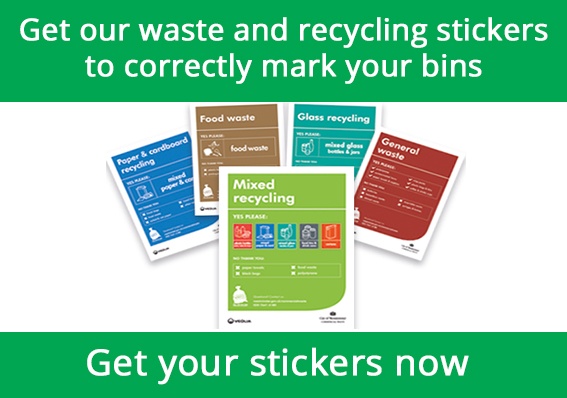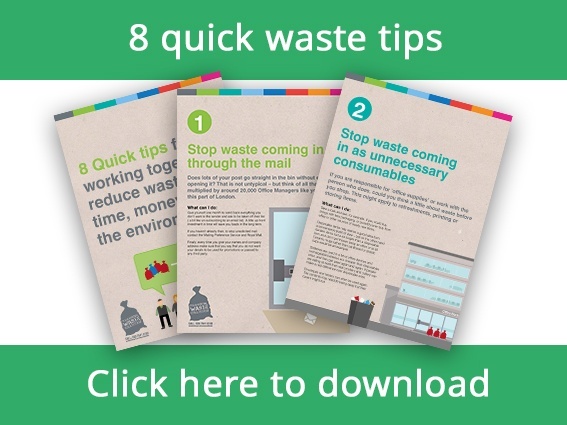Recent media articles covered the new restrictions on recycling imports brought in by the Chinese government and several other Far East countries. These restrictions are aimed at eliminating imports of poor quality; badly sorted recyclable materials such as paper and plastics. But is this really so bad for recycling? Does this mean that some materials now don’t get recycled?
The simple answer is no since there is much more to it than this. Historically, low-quality recyclables found an easy home in China which is now no longer possible. Recycling still produces pollution, especially in those countries with lax or no environmental regulation. Most waste and recycling companies in the UK are supportive of the new recycling import restrictions since it will help encourage better processing by sorting facilities. This in turn helps achieve higher recycling performance. It will make things a lot harder for low performing sorting facilities producing poor quality recyclable materials. These facilities often export their materials abroad, for example to developing countries with less strict environmental regulations. In essence, the market for recyclable materials is only rebalancing itself after it was artificially inflated for years. This is a good thing because low-quality recyclable materials don’t serve a purpose.
Public data from the WRAP materials recycling facility portal, which records sorting facility performance, shows that up to 50% of recycling collected from businesses in London by some privately operating recycling collectors was never actually recycled but rejected by the sorting facility since it was of such poor quality that it could not be processed. This recycling material contained too much unrecyclable waste. This is usually due to poor segregation by the waste producer and lax quality control during the collection process. Much of rejected material was subsequently exported abroad, as refuse derived fuel, to be burned. Low quality recyclable materials are not sustainable or efficient and can be easily avoided.
What does London’s recycling performance currently look like?
Every year a staggering 195,000 tonnes of waste is collected by Westminster City Council, the most of all the London Boroughs. This volume could easily fill up The Shard twice! Westminster City Council, with the help of Veolia, has made good progress towards improving recycling. Last month the total recycling figure hit 36% of all municipally collected waste, which is great progress towards the 50% recycling target set for 2025 within London as a whole. Most other councils have the benefit of being able to collect large volumes of garden waste which boosts recycling rates but in Westminster this material simply is not available due to the lack of gardens. Not only this, but Westminster has a high proportion of high-rise properties and a huge number of tourists which contributes to contaminated recycling bins on our streets. We have no other option but to collect these contaminated bins as general waste. London’s overall performance is not as bad as often stated in the media; it actually compares very favourably to many other, often less dense, European cities.
Due to robust quality control processes, the high-quality recyclable materials we collect have no trouble in finding recycling outlets and most of these materials also stay in the UK for recycling. This means we don’t have a reliance on exporting recyclable materials to the Far East. Plastics are a good example of this. After initial processing (see the video below), the plastics we collect go to a recycling facility in Dagenham which turns them into new food grade packaging material.
Another example is the coffee cups we collect from Westminster businesses which are recycled in the UK into new paper for carrier bags.
Is your business managing its waste properly?
Westminster City Council supports the London Mayor’s Environment Strategy and welcomes the initiatives to improve recycling by businesses, done properly. The London Environment Strategy complements our own Greener City Action Plan perfectly. It’s one of our main objectives to clean up pollution in Westminster, for example by reducing air pollution from vehicles and recycle more waste. By working with local businesses and stakeholders such as business improvement districts we are making real progress in reducing the number of inefficient commercial waste contractor movements. A great example of this is the Heart of London Business Alliance waste scheme. We are also creating more Low Emission Neighbourhoods after the success of the one in Marylebone.
Collecting high-quality recycling is the key to higher recycling rates, rather than relying on the outdated ways of the past. If you want to find out more about how we can help your business recycle properly then please see our recycling guide. Our quick guide on how to segregate different types of waste is also useful: just download it here. Separating your waste for recycling in clearly marked internal bins is the good first step. We can provide you with posters and stickers that you can display on or next to your bins to ensure the right materials are thrown inside.
If you use waste bags for your collections, please make sure you only place these out during the collection times shown here. This way they don’t become a burden to visitors of your street or your neighbours. Read here to find out how to properly present your waste bags for collection in Westminster.
How can you improve your recycling performance?
We have many more tips on how to reduce your waste and improve your business environmental sustainability credentials for customers, guest, stakeholders, neighbours etc. We are happy to advise you on how to reduce waste since this is even better than recycling it. Reducing waste will also help improve your bottom line since you won’t incur expenditure to have it collected and treated.
Download our guide including 8 quick tips on how to reduce waste.
To go one step further, you could book a waste audit with one of our experts. This analysis of your waste will point out where you can improve and recycle more. One of our trained representatives will come out to your business at a time that suits you and review your current waste and recycling arrangement. Using the information they gathered they will make recommendations for better recycling and also give helpful tips and advice which will help you improve the way you manage your waste.






.jpg?width=50)
